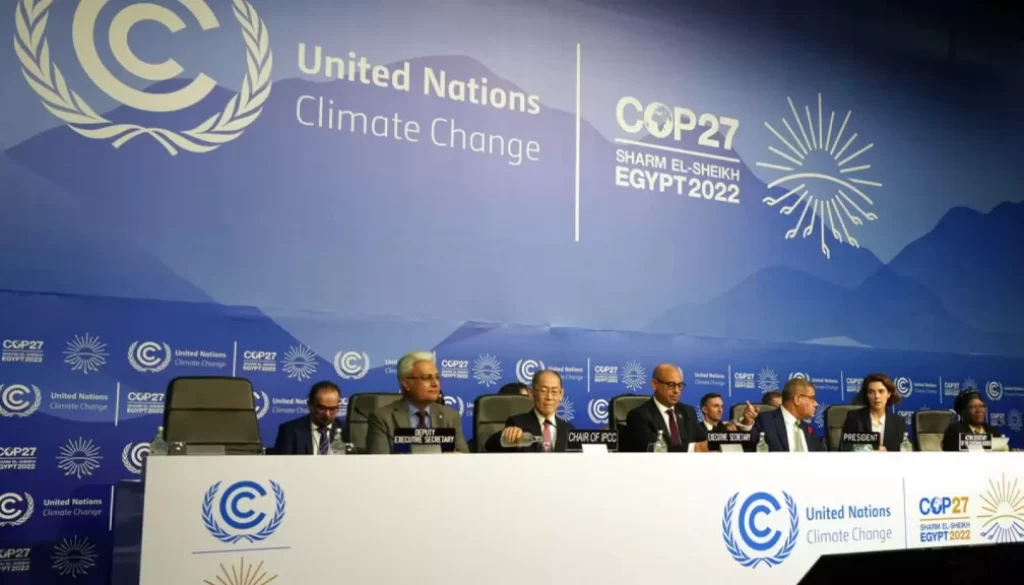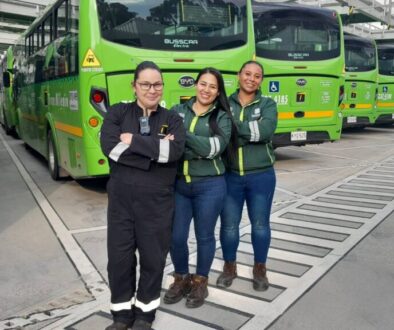COP27 and Latin America’s role in climate governance
The 27th Conference of the Parties to the United Nations Framework Convention on Climate Change (COP 27) builds on the outcomes of COP 26 to take action on certain key issues to address the climate emergency, ranging from urgently reducing greenhouse gas emissions, strengthening resilience and adapting to the unavoidable consequences of climate change, to meeting commitments to finance climate action in developing countries.
This conference took place against a backdrop of extreme weather events, an energy crisis in the wake of the war in Ukraine and scientific data reiterating that countries are not doing enough to reduce carbon emissions in order to protect our planet. The objectives expected from this Conference relate to limiting global warming to below 2c, strengthening the Global Adaptation Goal from the previous COP (26), the adequacy and predictability of climate finance to achieve the goals of the Paris Agreement and, finally, the role of partnership and collaboration to meet the other goals and ensure a more resilient and sustainable economic model.
But what is the role of Latin America and the Caribbean in COP 27?
From the previous Conference of Parties to this one, the items of the Paris Agreement have already been regulated, but when it comes to implementation, financing is needed. In this context, some countries in the Global South have listened to the demands of civil society organization regarding the importance of climate finance, as well as the need for countries in the Global North to assume their responsibility. In this sense, the COP 27 incorporated the perspective of damages and losses, i.e. that the countries of the Global North that have emitted the greatest amount of greenhouse gases should pay the countries of the Global South that are now suffering the climate consequences.
In addition, Latin American countries in particular have launched a joint initiative to be exempted from cancelling foreign debts in exchange for investing the money in emission reduction or adaptation projects, under the slogan “debt swap for climate action”. This proposal is presented as a central demand for countries in the Global South that have serious problems repaying their foreign debt, with the aim of seeking support and lobbying for its achievement.
The role of Latin American countries has been very latent and with initiatives. A clear example was the COP 27 side event, which resulted from the initiative of parliamentary leaders from Latin America and the Caribbean participating in the Parliamentary Observatory on Climate Change and Just Transition (OPCC). The OPCC emerged at COP 26 in Glasgow, with the aim of constituting a shared information tool on the state of play of environmental legislation and parliamentary treatment in the region.
On the day dedicated to financing, the Community of Latin American and Caribbean States (CELAC), under the pro tempore presidency of Argentina, announced a common agenda under the slogan “debt for climate finance”. One of the points highlighted was the call for a multilateral trade system, mentioned by Gustavo Petro (President of Colombia), based on open, non-discriminatory and equitable rules to put an end to unilateral measures that can constitute an arbitrary or restrictive covert means of international trade. This is an interesting point to review the regulatory mechanisms of trade law for foreign investors in order for states to provide “legal certainty” to foreign investors. This “legal certainty”, provided through Bilateral Investment Treaties, gives foreign investors extraordinary rights in that, in the event of an investor-state dispute, it grants investors the right to go to private international arbitration, where investors sue states (multi-million dollar claims) and not vice versa. In investor arbitration, states have been the big losers: of the 327 known cases against countries in Latin America and the Caribbean, 206 cases have been settled, with the investor benefiting in 62% of cases (ISDS 2022, 4). Beyond the resolution in favour of the investor or the state, the claims cost the state millions of dollars in defence and litigation costs.
Why is the participation of young people and civil society organizations important?
It is the first COP where children and youth have a pavilion to observe, follow debates and exchange experiences. The role of youth and civil organizations in this COP is fundamental for monitoring, communication, and to disseminate what is happening within the negotiation – often these types of Conferences tend to be very technical and difficult to access. At the same time, many of the climate decisions taken at the national level begin to be elaborated in these Conferences or international spaces.
From Asuntos del Sur, Fundación Ciudadanía Inteligente, Extituto de Política Abierta and Instituto Pro Comum, we have formed the International Consortium of Localities in Action (CILA) as a space for connecting collective intelligence with the aim of exchanging experiences, addressing governance challenges and working on innovative responses from cities in the global south.
In a context that demands collaboration between countries of the Global South, CILA becomes a working space for co-creation and networking spaces between diverse civil organizations, local government representatives and academia to exchange, strengthen and find collective responses to the common challenges that COP 27 will leave us with for the cities of the Global South.
For more information on how we achieve these actions, watch the video of Conexión.CILA Bogotá.
By Fiorella Ricagno, CILA Intern.




